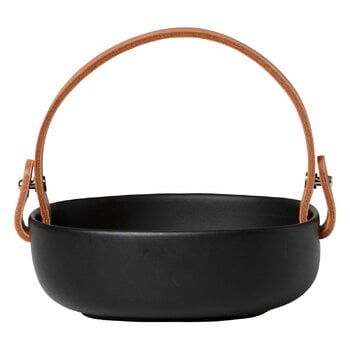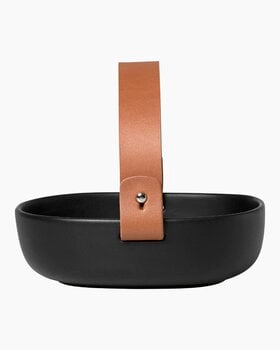Marimekko’s Pikku Koppa is an adorable, small serving dish made of ceramics and coated with a black glaze. The ceramic dish is characterized by a simple and pleasant design suitable for both everyday and festive table settings.
Complete with a leather handle, Pikku Koppa can be used for serving food, displaying small objects and storing personal items. Pikku Koppa is part of the Oiva collection designed by Sami Ruotsalainen.







